Many drug crimes in Texas do not involve just one person, so conspiracy charges become very common prosecutorial tools for getting alleged offenders to disclose accomplices in committing felony drug crimes. When you are facing a conspiracy or any other kind of drug charge in Denton County, be sure that you are working with an experienced Denton drug conspiracy attorney.
In 2018, the Drug Enforcement Administration (DEA) and the United States Attorney for the Northern District of Texas announced that 20 people had been charged in a conspiracy to distribute and possess with intent to distribute methamphetamine, cocaine, and marijuana; distribution and possession with intent to distribute methamphetamine, cocaine, cocaine base, and marijuana; unlawful use of a communications facility; and bulk cash smuggling. Drug conspiracies can result in either state or federal charges, and both crimes can carry significant penalties.

Drug Conspiracy Defense Lawyer in Denton, Frisco, Lewisville, Flower Mound, TX
If you were arrested for an alleged drug conspiracy crime, contact the Law Offices of Richard C. McConathy today for a consultation about your alleged offense in Denton, Frisco, Lewisville, Flower Mound, and surrounding areas of Denton County, Texas.
The Law Offices of Richard C. McConathy knows how to fight all kinds of drug charges in Texas and will be able to work to possibly get your criminal charges reduced or dismissed. Call (940) 222-8004 or contact us online for a free consultation that will let us review your case and discuss all of your legal options.
Texas Drug Conspiracy Charges
Under Texas Penal Code § 15.02, a person commits the offense of criminal conspiracy when they, with the intent to commit a felony, agree with one or more persons that they or one or more of them will engage in conduct that constitutes the alleged offense, and they or one or more of them performs an overt act in pursuance of their agreement.
An agreement constituting a conspiracy can be inferred from acts of the parties. It is not a defense to criminal conspiracy charges that one or more of the co-conspirators was not criminally responsible for the object alleged offense, one or more of the co-conspirators has been acquitted, so long as two or more co-conspirators were not acquitted, one or more of the co-conspirators has not been prosecuted or convicted, has been convicted of a different offense, or is/are immune from prosecution, the alleged offender belongs to a class of people who by definition of the object offense is/are legally incapable of committing an object offense in an individual capacity, or the object offense was actually committed.
A criminal conspiracy offense will be graded one category lower than the most serious felony that is the object of the conspiracy. This means that a conspiracy to commit a first-degree felony drug crime is a second-degree felony, a conspiracy to commit a second-degree felony drug crime becomes a third-degree felony, a conspiracy to commit a third-degree felony drug crime is a state jail felony, and a conspiracy to commit a state jail felony drug crime is a Class A misdemeanor.
Federal Drug Conspiracy Charges
There are multiple federal laws relating to drug conspiracy charges. Title 21 U.S. Code § 841 and Title 21 U.S. Code § 842 both relate to prohibited drug acts, and Title 21 U.S. Code § 952 relates to the importation of controlled substances.
Under Title 21 U.S. Code § 846, an attempt and conspiracy offense is defined as a person attempting or conspiring to commit any crime defined above. An alleged offender can be subject to the same penalties as those prescribed for the alleged offense, the commission of which was the object of the attempt or conspiracy.
Drug Conspiracy Penalties
As it relates to Texas state conspiracy charges, a conviction may result in one of the following sentences:
- Class A misdemeanor — Up to one year in jail and/or fine of up to $4,000
- State Jail Felony — Up to two years in state jail and/or fine of up to $10,000
- Third-Degree Felony — Up to 10 years in prison and/or fine of up to $10,000
- Second-Degree Felony — Up to 20 years in prison and/or fine of up to $10,000
- First-Degree Felony — Up to 99 years or life in prison and/or fine of up to $10,000
With federal offenses, then the type of drug involved can significantly impact the possible penalties. Again, the four kinds of federal drug crimes usually involve either manufacturing a controlled substance, distributing a controlled substance, possessing a controlled substance with the intent to distribute it, or importing a controlled substance.
In marijuana cases, no alleged quantity can result in up to 20 years in prison, 100 kilograms or more of marijuana can involve up to 40 years in prison, and 1,000 or more kilograms of marijuana can lead to a life sentence in prison. With cocaine or “crack” cocaine, no alleged quantity of cocaine or crack can result in up to 20 years in prison, 500 grams or more of cocaine or 28 grams or more of crack cocaine can lead to up to 40 years in prison, and 5 or more kilograms of cocaine or 280 grams or more of crack cocaine could lead to life in prison.
With methamphetamine, no alleged quantity of methamphetamine can mean up to 20 years in prison, 5 grams or more of methamphetamine may mean up to 40 years in prison, and 50 or more grams of methamphetamine could lead to life in prison. Heroin without a quantity specified can mean up to 20 years in prison, 100 grams or more of heroin can mean up to 40 years in prison, and 1 or more kilograms of heroin could result in life in prison.
Federal agencies are also placing a greater emphasis now on drug conspiracies involving opioids, especially those involving fentanyl and fentanyl analogues. A controlled substance “analogue” refers to a chemical compound that is substantially similar to a controlled substance, both in its chemical structure and in its effects it produces when consumed.
Certain cases could also involve sentencing enhancements. The government may seek enhancements when a person dies or is seriously injured because of the use of a controlled substance involved in a drug conspiracy or if the alleged offender has one or more prior felony convictions for drug offenses.
Denton Drug Conspiracy Resources
Drug Conspiracies | Office of Justice Programs (OJP) — View this United States Department of Justice OJP page discussing how drug trafficking often involves an agreement between two or more people to cooperate in an illegal drug enterprise and conspiracy laws represent an effective way to address the drug trafficking problem. While most conspiracy laws require at least two alleged offenders having a criminal intent to enter into an agreement in order for that agreement to be a conspiracy, several states are enacting unilateral conspiracy laws allowing an alleged offender to be charged with conspiracy if an alleged offender agrees with an informant or undercover agent to commit a crime even though the agent or informant does not have the intent to commit a crime. One major exception is known as Wharton’s Rule and provides that a conspiracy cannot be charged when the commission of a substantive offense requires concert of action between two people, but when an additional party who is not necessary for the commission of the offense is involved in the transaction, then the rule will not preclude a conspiracy charge.
Primer on Drug Guidelines — This United States Sentencing Commission (USSC) primer intends to provide a general overview of the statutes, sentencing guidelines, and relevant case law relating to drug trafficking. Learn more about drug statutes, offense guideline sections, relevant conduct issues, manipulation or entrapment, adjustment, criminal histories, and sentencing determinations and procedures. The document notes that with conspiracy convictions, the quantities of each single type of drug charged within a conspiracy are aggregated to establish statutory penalties. Still, uncharged drug quantities cannot be included to establish statutory penalties.
Find A Denton County Defense Attorney for Drug Conspiracy Charges | Law Offices of Richard C. McConathy
Were you arrested for an alleged drug conspiracy crime anywhere in Denton County? It is going to be important for you to quickly seek legal counsel because you will likely be dealing with a prosecutor seeking to impose maximum penalties for your alleged offense, which could involve you facing a lengthy prison sentence and very heavy fines.
The Law Offices of Richard C. McConathy knows how overwhelming these types of criminal charges can be for the average person and we will work closely with you so you do not have to deal with anything on your own and you can know that you will have a criminal defense lawyer representing you every single step of the way in resolving your case. You may call (940) 222-8004 or contact us online to schedule a free consultation with our firm which will allow us to better examine all of the details of your case and explain what we might be able to do to help you.


